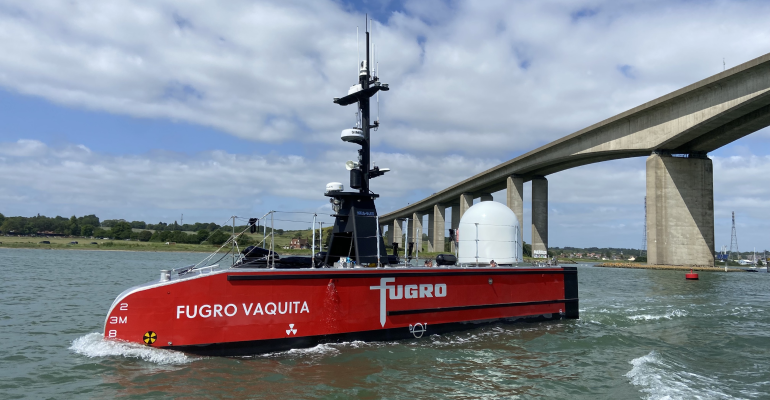The certificate is the first UMS issued by Lloyd’s Register for a category 0 vessel. The X-Class Fugro Blue Essence was awarded Category 0 approval, the highest level of approval for workboats, by the UK Maritime and Coastguard Agency in January 2024.
Fugro Blue Essence is now the largest Cat 0 certified USV to operate fully remotely and with unrestricted service to support marine projects further offshore.
SEA-KIT USVs are deployed on commercial projects around the world. The company said it has several vessels in build and on order, including its next-generation 18 metre, SEA-KIT XL- Class USV, which will also be certified against Lloyd’s Regiester’s UMS.
Doug Graham, SEA-KIT MD, said: “Certification is essential for the industry to provide a safety assurance framework and it is testament to the team’s hard work that SEA-KIT now holds the most UMS certificates awarded to any company. We will strive to maintain this leadership stance and our long-standing relationship with Lloyd’s Register, so that we can continue to support the sector in achieving ambitious net zero targets.”
Mathew Palmer, LR Global Naval Business Lead – Submarines and Uncrewed Systems said: “Lloyd’s Register is delighted to award UMS certification to this SEA-KIT X- Class Fugro Blue Essence. The USV’s state-of-the-art design and capabilities demonstrate the future of marine technology, and this certification underscores the vessel’s readiness for remote operation in challenging maritime environments.”
Copyright © 2024. All rights reserved. Seatrade, a trading name of Informa Markets (UK) Limited.
Add Seatrade Maritime News to your Google News feed.  |

